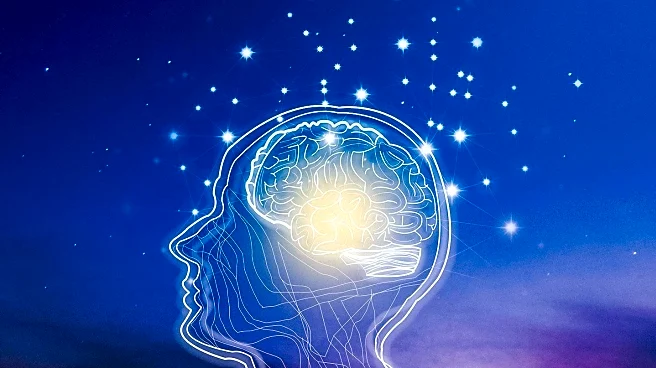What's Happening?
A recent study published in Nature explores the neural and molecular effects of mind-body interventions, such as meditation and open-label placebo healing, on human health. Conducted at a retreat in San
Diego, the study involved 36 participants who underwent a series of guided meditations and healing rituals over seven days. The research aimed to understand how these practices influence brain activity and gene expression. Participants were subjected to fMRI scans and blood tests before and after the retreat to measure changes in brain connectivity and molecular markers. The study found that these interventions can significantly alter neural activity and gene expression, suggesting a profound impact on mental and physical health.
Why It's Important?
The findings of this study highlight the potential of mind-body interventions to improve mental and physical health by altering brain function and gene expression. This research could influence the development of new therapeutic approaches for mental health disorders, offering non-pharmacological options for treatment. The study's results may encourage healthcare providers to integrate such practices into treatment plans, potentially reducing reliance on medication. Additionally, the research underscores the importance of understanding the biological mechanisms behind these interventions, which could lead to more effective and personalized healthcare strategies.
What's Next?
Further research is needed to explore the long-term effects of mind-body interventions and their potential applications in clinical settings. Future studies could focus on larger and more diverse populations to validate these findings. Additionally, researchers may investigate the specific components of these interventions that contribute most to the observed changes, which could help refine and optimize therapeutic practices. The integration of mind-body interventions into mainstream healthcare could also prompt discussions on healthcare policy and insurance coverage for such treatments.
Beyond the Headlines
The study raises ethical and cultural considerations regarding the acceptance and integration of non-traditional healing practices in Western medicine. As these interventions gain scientific validation, there may be a shift in cultural perceptions, leading to broader acceptance and utilization. This could also spark debates on the commercialization of such practices and the need for regulation to ensure safety and efficacy.











